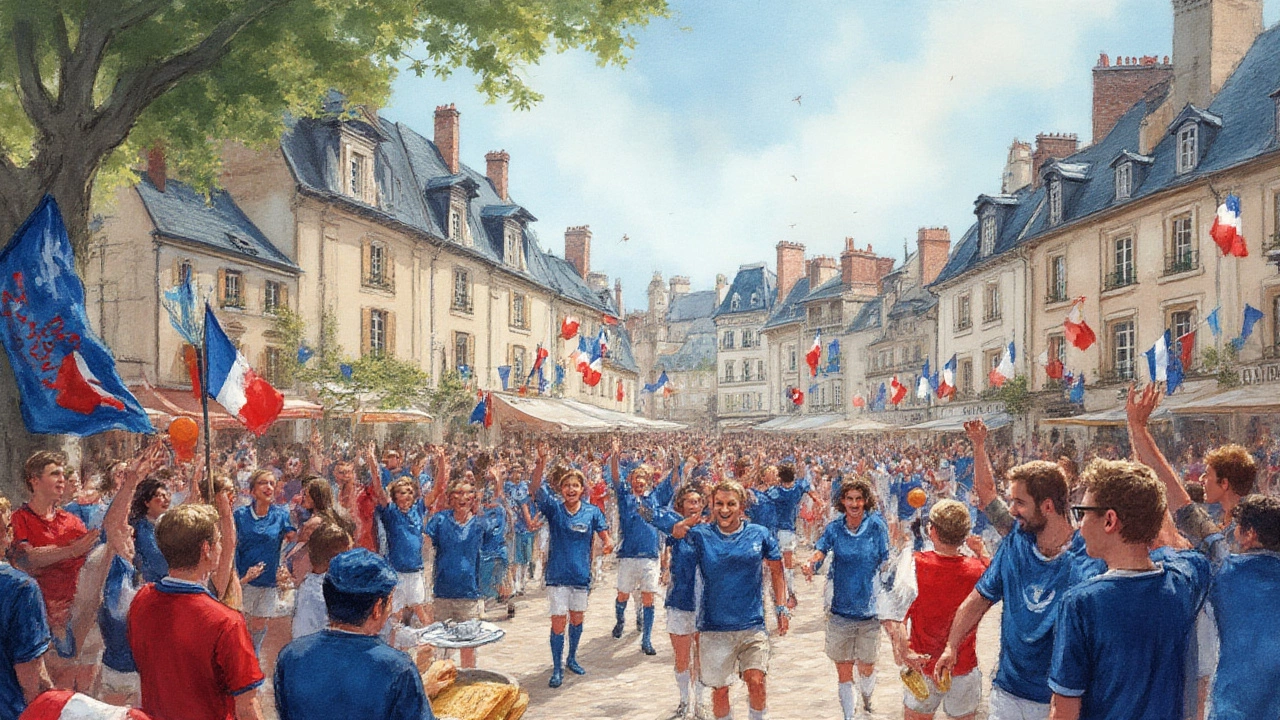French Sports Culture – What Makes It Tick
France isn’t just about Eiffel towers and fine wine; it’s also a nation that breathes sport. Whether you’re watching a match in Paris or joining a weekend game in a small town, sport is woven into daily life. Below we break down the sports that shape French identity and the ways fans keep the energy alive.
Top Sports That Define France
The first name that pops up is football. Ligue 1 clubs like PSG, Olympique Marseille and Lyon draw crowds that fill stadiums week after week. Kids lace up their boots in schoolyards, and every summer the national team’s games become family events. The win at the 1998 World Cup turned football into a shared memory that still brings strangers together at pubs and parks.
Rugby holds a special place, especially in the southwest. Towns such as Toulouse and Clermont‑Ferrand have a rugby‑first vibe; you’ll hear the chant of supporters before you see the pitch. The Top 14 league is fiercely competitive, and the French national team’s performances in the Six Nations spark national pride.
Cycling is practically a religion. The Tour de France rolls across the country each July, turning small villages into global headlines. Even when the race isn’t on, local clubs organize rides that blend fitness with social time. The iconic yellow jersey represents more than a race win; it’s a symbol of endurance that resonates across ages.
Tennis also shines thanks to Roland Garros. The French Open brings the world to Paris every May, and you’ll find locals practicing forehands on public courts long after the finals end. The clay surface is a point of pride, and French players like Gaël Monfils inspire the next generation.
Don’t forget pétanque, the boules game you’ll see on sunny plazas. It’s a relaxed pastime where friends gather, argue over scores, and share a drink. The simplicity of throwing metal balls makes it accessible to anyone, from toddlers to retirees.
Cultural Traditions Around French Athletics
Fans in France are known for their passion, but they also respect the sport. Chanting, waving flags, and making noise are common, yet there’s a strong sense of fairness. When a team wins, celebrations spill onto the streets, but you’ll also see quiet moments of reflection after a loss.
Local clubs act as community hubs. Joining a football academy or a cycling group isn’t just about training; it’s about meeting people, learning values, and building a network. Many towns have municipal facilities that offer free or low‑cost access, keeping the barrier to entry low.
Food and sport go hand in hand. A weekend match often means a spread of baguettes, cheese, and a bottle of wine. After a long ride, cyclists stop at a café for a croissant and espresso. These rituals turn a simple game into a cultural experience.
Media coverage is extensive. National TV, radio, and online platforms provide live commentary, analysis, and fan forums. Social media amplifies the conversation, letting supporters tweet reactions in real time.
Overall, French sports culture is a blend of competition, community, and tradition. It’s not just about who scores the most; it’s about how the game brings people together, teaches discipline, and creates stories that last a lifetime. Whether you’re a visitor or a resident, stepping into a French stadium or a local pétanque court gives you a front‑row seat to the country’s love for sport.
What Do the French Call Rugby? Language, Culture, and the Heart of French Rugby

Curious about what the French call rugby? Discover the language, culture, and unique personality behind rugby in France, packed with facts and fun context.
